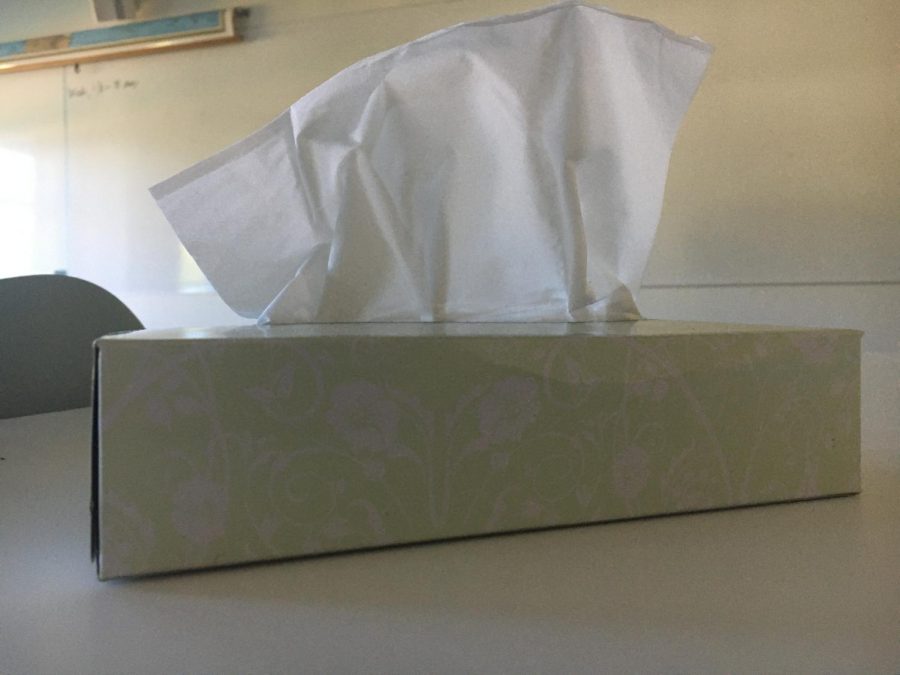Editorial: Sick students should stay home
Photo credit: Anna Brodsky
A box of tissues sits on a classroom desk. During finals week, students came to school despite being sick.
Sniffle. Cough. Sneeze. Sounds of sickness filled exam rooms during fall semester finals week this year. Archer community members received an email midday December 19 that focused on the advent of cold and flu season and revealed several Archer students had recently been diagnosed with the flu. Though academic stakes felt heightened during exam time, the Editorial Board encourages students to prioritize their health during future finals and for the remainder of the year.
If another cold outbreak were to occur during a future exam week, the Editorial Board requests that administration send all students clear procedures on test make-ups. A reminder that it is, in fact, possible to delay exams in the case of illness would empower students to thoughtfully consider their options with their own and the community’s well being in mind.
For students with either the common cold or the flu, coming to school can slow individual recovery time. Rather than attempting to push through that last math test, students should heed those feelings of fatigue and grogginess. It’s easy to feel like “normal rules” for staying home sick do not apply during finals week. However, if anything, finals provide more of an incentive for those with contagious diseases to stay home because it is difficult to perform well when battling severe symptoms.
Coming to school while sick is ultimately a choice that impacts the greater community, not just the individual. Though students may take great pains to avoid physical contact with their others, the flu and the common cold are airborne illnesses. Coughing, sneezing or talking can contribute to the spread of flu even if the student takes every precaution. By staying home, students not only make the responsible choice for themselves but demonstrate consideration for the welfare of those around them.
This problem is not limited to Archer. According to Forbes, only 16% of workers used all of their paid sick days in 2016. Top reasons for going into the office while ill included not feeling “sick enough” or having “too much work to complete.” Though some workplaces may cultivate cultures in which it is acceptable to show up despite illness, we are lucky to go to a school in which students are encouraged to advocate for themselves and their own well-being. If a student is contagious, she is sick enough to stay home.
Ultimately, choosing to attend school while sick harms both the student and the community. Students and administration should work together to promote well-being and health on campus.

The Oracle's student editorial board, led by the Editor-in-Chief, makes all decisions that pertain directly to the Oracle and has final say over all content....

Anna Brodsky joined the Oracle staff in 2016. She took a hiatus for the 2017-2018 school year to fulfill her art credit by serving as copy editor for the...











Kate Hamilton • Feb 6, 2020 at 5:21 am
I love this story! I think that around this time of year people are always getting colds and it is not fair to make go to school, even take exams, when they are not feeling well. It doesn’t help the student or anyone around them so why should they go to school?